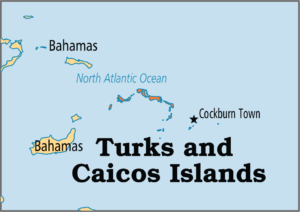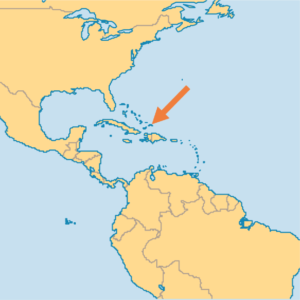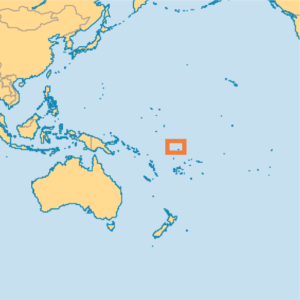TODAY’S READING FROM THE OLD TESTAMENT- DANIEL 5:1-3
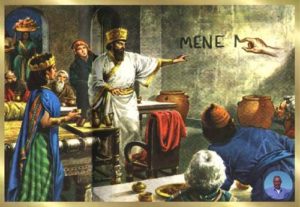 Daniel is now more than eighty years old. Chapter 5 takes place 66 years after Chapter 1 and at least 23 years after Chapter 4 because Nebuchadnezzar died in 562 B.C. Daniel was taken to Babylon in 605 B.C. when Nebuchadnezzar came to power. Babylon would have 5 more kings after Nebuchadnezzar’s death. Daniel would experience 66 years under Babylonian rule, with 6 different kings. The Babylonian Empire comes to a sudden end in Chapter 5 when its last emperor, Belshazzar, is killed, and the Medes and Persians conquer the city.
Daniel is now more than eighty years old. Chapter 5 takes place 66 years after Chapter 1 and at least 23 years after Chapter 4 because Nebuchadnezzar died in 562 B.C. Daniel was taken to Babylon in 605 B.C. when Nebuchadnezzar came to power. Babylon would have 5 more kings after Nebuchadnezzar’s death. Daniel would experience 66 years under Babylonian rule, with 6 different kings. The Babylonian Empire comes to a sudden end in Chapter 5 when its last emperor, Belshazzar, is killed, and the Medes and Persians conquer the city.
Here is the chronology of the Babylonian kings of the Neo-Babylonian era (the 11th dynasty of Babylon):
- Nabopolassar- 626-605 B.C.
- Nebuchadnezzar II 605- 562 B.C.
- Evil-Merodach 562-560 B.C. (Son of Nebuchadnezzar II)
- Negral-sharezer 560-556 B.C. (Son in law of Nebuchadnezzar II. Murdered Evil-Merodach)
- Lambashit-Marduk 556 B.C. (Son of Negral-aharezer. Murdered after deemed unfit to rule)
- Nabonidus 556-539 B.C. (Last Mesopotamian king of Babylon. Often left his rule to Belshazzar in co-regency arrangement)
- Belshazzar 553-539 B.C. (The son of Nabonidus co-reigned with his father. When Cyrus of Persia took over Babylon’s important trade routes, Nabonidus took on the project of trying to win them back, moving to Arabia to build a commercial empire, leaving Belshazzar in charge of Babylon as his vice-regent.)
This chapter records the last evening of the Neo-Babylonian Empire. Babylon, the first of the four Empires in the age of the Gentiles (Babylon, Medo-Persia, Greece, Rome), would fall to the divided Empire of the Medians and Persians.
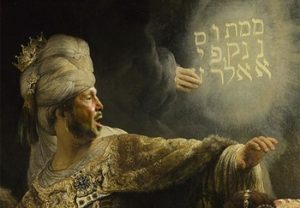 Daniel knew this day was coming. He was a student of the prophecies of Jeremiah who predicted the fall of Babylon (some of these prophecies in Jeremiah 50 and 51 are still for the future). But these verses were accurately fulfilled in the first fall of Babylon.
Daniel knew this day was coming. He was a student of the prophecies of Jeremiah who predicted the fall of Babylon (some of these prophecies in Jeremiah 50 and 51 are still for the future). But these verses were accurately fulfilled in the first fall of Babylon.
Jeremiah 51:11-13 11 Sharpen the arrows, fill the quivers! The LORD has aroused the spirit of the kings of the Medes, because His purpose is against Babylon to destroy it; for it is the vengeance of the LORD, vengeance for His temple. 12 Lift up a signal against the walls of Babylon; Post a strong guard, Station sentries, Place men in ambush! For the LORD has both purposed and performed what He spoke concerning the inhabitants of Babylon. 13 O you who dwell by many waters, abundant in treasures, your end has come, The measure of your end.
Jeremiah even predicted the method by which the Medes and Persians would take the city. They would cut off the waters of the Euphrates that fed the moats that surrounded the city, lowering the water level so the armies could enter the city through the aqueduct gates that were usually submerged under water.
Jeremiah 51:36 36 Therefore thus says the LORD, “Behold, I am going to plead your case and exact full vengeance for you; and I will dry up her sea and make her fountain dry.”
Jeremiah also gives us a prophetic picture of the drunken feast.
Jeremiah 51:39 39 “When they become heated up, I will serve them their banquet and make them drunk, that they may become jubilant and may sleep a perpetual sleep and not wake up,” declares the LORD.
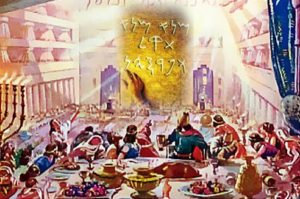 Belshazzar’s feast in Babylon would make the feasts of Ahasuerus (Xerxes II), described in the Book of Esther (Chapter 1), look smaller by comparison. The dining hall in Babylon, we are told in extrabiblical accounts, was 1,650 feet wide and one mile long. There were 4,500 stone pillars lining the walls, shaped like elephants and standing 20 feet high. Trained peacocks with gold and silver trimmed harnesses, drew miniature chariots laden with choice food and wine for the guests numbering 1000.
Belshazzar’s feast in Babylon would make the feasts of Ahasuerus (Xerxes II), described in the Book of Esther (Chapter 1), look smaller by comparison. The dining hall in Babylon, we are told in extrabiblical accounts, was 1,650 feet wide and one mile long. There were 4,500 stone pillars lining the walls, shaped like elephants and standing 20 feet high. Trained peacocks with gold and silver trimmed harnesses, drew miniature chariots laden with choice food and wine for the guests numbering 1000.
All this would be changed overnight as the Medes and Persians cut off the waters of the Euphrates. This gave the armies unprecedented access through water tunnels, enabling them to enter an otherwise impregnable city.
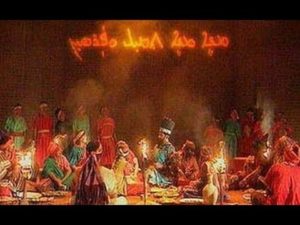 The war would be won without a long fight. It was timed in God’s providence, at the climactic moment when Belshazzar proudly invited his guests to drink themselves to drunkenness with the silver and gold vessels that he proudly proclaimed had been stolen by his ancestor Nebuchadnezzar from the temple of the Hebrews in Jerusalem. The holy purpose of these vessels was now being publicly desecrated. These inanimate objects created for holy use in the temple of the One True God were now being worshiped by pagans in the birthplace of idolatry.
The war would be won without a long fight. It was timed in God’s providence, at the climactic moment when Belshazzar proudly invited his guests to drink themselves to drunkenness with the silver and gold vessels that he proudly proclaimed had been stolen by his ancestor Nebuchadnezzar from the temple of the Hebrews in Jerusalem. The holy purpose of these vessels was now being publicly desecrated. These inanimate objects created for holy use in the temple of the One True God were now being worshiped by pagans in the birthplace of idolatry.
John Philips writes in his commentary on Daniel:
“Then it happened! Out of the dark sleeve of the night appeared a mysterious moving hand. The king sees it first. It was eerie, uncanny, and terrifying, the hand of a specter. The king’s immediate reaction resembled a case of ‘delirium tremens’ – wild, terrifying hallucinations brought on by heavy drinking.”
Daniel 5:5-6 5 Suddenly the fingers of a man’s hand emerged and began writing opposite the lampstand on the plaster of the wall of the king’s palace, and the king saw the back of the hand that did the writing. 6 Then the king’s face grew pale and his thoughts alarmed him, and his hip joints went slack and his knees began knocking together.
The words “Mene, Mene, Tekel, Peres” baffled all. None of the Magi could interpret their meaning. Daniel would give his last interpretation recorded in this book. But before he does, he gives Belshazzar a history lesson, reminding him that his ancestor Nebuchadnezzar was humbled until he recognized that the Most High God was sovereign over all the kingdoms of the earth, and He sets over them anyone He wishes.
“But you have not humbled yourself though you knew this. You have set yourself against the Lord of heaven. You did not honor the God who holds in his hand your life and all your ways.” (Daniel 5:23)
Daniel then interprets the shortest prophecy in the Bible. This was a prophecy of only four words made up of only a dozen letters. (Jonah’s prophecy comes close to being the shortest, consisting of only eight words in English- “Yet forty days, and Nineveh shall be overthrown”).
 Daniel was able to decipher the words, putting together the letters in his head no matter in what order they were written. ‘Mene’- ‘Numbered!’; ‘Tekel’: ‘Weighed!’ and ‘Peres’: ‘Divided’! The repetition of the word, ‘Mene’ emphasized that the days of Belshazzar’s life and kingdom were numbered. God has numbered his days, and now they had come to an end. ‘Tekel!’ Belshazzar, his gods, and his kingdom were weighed in the balances and found wanting. God gave the king time for repentance, even as he had for his ancestor, Nebuchadnezzar, but Belshazzar did not humble himself. Instead, he insulted the God of Israel by mocking the holy vessels of the temple. ‘Peres!’ His kingdom would be divided from him by a divided kingdom of Medes and Persians.
Daniel was able to decipher the words, putting together the letters in his head no matter in what order they were written. ‘Mene’- ‘Numbered!’; ‘Tekel’: ‘Weighed!’ and ‘Peres’: ‘Divided’! The repetition of the word, ‘Mene’ emphasized that the days of Belshazzar’s life and kingdom were numbered. God has numbered his days, and now they had come to an end. ‘Tekel!’ Belshazzar, his gods, and his kingdom were weighed in the balances and found wanting. God gave the king time for repentance, even as he had for his ancestor, Nebuchadnezzar, but Belshazzar did not humble himself. Instead, he insulted the God of Israel by mocking the holy vessels of the temple. ‘Peres!’ His kingdom would be divided from him by a divided kingdom of Medes and Persians.
The king responds to Daniel as he promised. He honored the interpreter of his dream with a scarlet robe and golden chain of office. Daniel is made number three in command, second only to Nabonidus and Belshazzar. However, Belshazzar would no longer have the authority to bestow honors. He was killed that night (Daniel 5:20), and Darius the Mede, 62 years old, would now rule. This is not Darius I who ruled from 522 to 486 B.C., mentioned by Ezra, nor is this the Persian Darius II, the father of Xerxes. Darius the Mede could have been an agent of Cyrus, known as Gubaru, or this could be another name for Cyrus himself.
TODAY’S READING FROM THE NEW TESTAMENT – 2 PETER 2:1-22
 Peter warns his readers of false prophets and teachers that were among them. Peter remembers well that Jesus warned of false prophets (Matthew 7:15; Matthew 24:11; Mark 13:22-23). He was now seeing Jesus’ predictions coming true.
Peter warns his readers of false prophets and teachers that were among them. Peter remembers well that Jesus warned of false prophets (Matthew 7:15; Matthew 24:11; Mark 13:22-23). He was now seeing Jesus’ predictions coming true.
False teachers were twisting the words of Jesus, telling people what they wanted to hear. They belittled the importance of Jesus’ sinless life, His atoning death, and His bodily resurrection. They made Jesus into a mystic, a guru, or a spiritual master. They denied His deity. Others denied His humanity, saying that He was an emanation from God. Their teaching encouraged their followers to practice sexual impurity and give in to sensuality, indulging the corrupt desires of the sinful nature.
Peter makes the point that God will hold the unrighteous and rebellious accountable on the day of judgment. Yet He will rescue the godly. Peter gives these examples:
- The angels that rebelled. He sent them to hell putting them into dungeons of darkness where they await eternal judgment (2:4). Yet godly angels survive.
- God judged the ancient world with the Flood, for the world had become so corrupted that people desired to do evil continually (Genesis 6:5). Yet he spared Noah (2:5).
- God condemned the cities of Sodom and Gomorrah and made them an example of what is going to happen to the ungodly. Yet, he rescued Lot, who was tormented by the immorality and selfishness of his contemporary society. (2:6-9)
Peter makes it clear that God does not turn a blind eye to sin, even if He is slow to bring judgment upon it.
2 Peter 2:10 10 and especially those who indulge the flesh in its corrupt desires and despise authority. Daring, self-willed, they do not tremble when they revile angelic majesties.
Today we see those who blaspheme, and indulge in behavior condemned by God’s Word without any sense of remorse or shame. They despise authority. They consider themselves autonomous. No one tells them what to do. They are their own gods. And yet, they are slaves to their sin nature. Peter exhorts them not to be deceived. Don’t give in to the suggestion that sin is nothing to be bothered about. Don’t buy the excuse that ‘everyone is doing it’. Like Lot, we should be distressed by ungodliness.
Beware of teachers that use the grace of God as a license to sin, and do it in the name of ‘liberty’. They prove they are unregenerate by their works because they are still slaves of their own depravity. If they profess to know the Lord and do not recognize the sinfulness of sin and the need to turn from it, they prove that they are still living in bondage to the old nature. You can wash the pig, but a pig will act according to its inherent nature and wallow in the mud. Nothing short of a new nature, through the new birth, can liberate the human soul. And the new birth comes from turning away from sin and trusting in the Lord Jesus Christ.
TODAY’S READING FROM THE BOOK OF PSALMS – PSALMS 119:113-128
 We have the next sixteen verses- the eight all beginning with the Hebrew letter ‘Samkl’ and eight beginning with ‘Ayin’.
We have the next sixteen verses- the eight all beginning with the Hebrew letter ‘Samkl’ and eight beginning with ‘Ayin’.
The writer contrasts the old ways of double-mindedness and evil doing with the new relationship he has with sin. He hates it. He wants to flee from it. He says, ‘Away with it’!
The Psalmist prays, “Sustain me.” “Uphold me.” “Do not let my hopes be dashed.”
The Letter ‘Ayin’ leads verse 120 to 128. He is committed to doing what is right, but is surrounded by oppressors who advocate every false way. They are law breaking, arrogant and unjust.
He prays: He knows he needs discernment; therefore, he needs God’s Word.
Psalm 119:124-125 124 Deal with Your servant according to Your lovingkindness and teach me Your statutes. 125 I am Your servant; give me understanding, That I may know Your testimonies.
Do we esteem the revelation of God’s Word? Do we commit to following its precepts? Are we indifferent in the name of political correctness when others advocate every false way? (Psalm 119:126)
TODAY’S READING FROM THE BOOK OF PROVERBS – PROVERBS 28:19-20
Proverbs 28:19-20 19 He who tills his land will have plenty of food, but he who follows empty pursuits will have poverty in plenty. 20 A faithful man will abound with blessings, but he who makes haste to be rich will not go unpunished.
Don’t pursue idle fancies. Be industrious as you steward God’s gifts for the good of others. Your work is a blessing. Short cuts cheat you.
PRAY FOR THE NATIONS-
(from “Operation World Prayer Guide” and Prayercast.com)
Turks & Caicos Islands
Geography
An archipelago of 30 coral islands at the southeastern end of the Bahamas.
Population: 32,990 Annual Growth: 1.56%
Capital: Grand Turk (Cockburn Town)
Peoples
Official language: English Languages: 2 All languages
Religion
Largest Religion: Christian
|
Religion |
|
Pop % |
Ann Gr |
|
29,806 |
90.35 |
1.5 |
|
|
10,686 |
32.4 |
2.1 |
Challenges for Prayer
Poverty is an issue – 25% live below the poverty line, despite a growing economy. Pray that God might open new opportunities for the economically disadvantaged and that any social and economic advancement would be for the betterment of the whole population.
Tuvalu
Pacific
One of the smallest and most isolated nations on Earth, Tuvalu is a group of nine small islands northeast of Australia. Populated by a Polynesian people group, the islands came under British rule in 1892 and received independence in 1978. The highest point is just 16 feet (4.9m) above sea level, and the islands are shrinking and threatened by rising sea levels. Radio is the predominant form of cross-island communications.
These islands face an uncertain future. Limited natural resources, rising sea levels, beach erosion, and lack of rivers and lakes have contributed to the Tuvaluan government making arrangements with Australia and New Zealand for population evacuation in case of environmental emergency. The culture is also under threat from immoral foreign influences and growing income disparities. The economy appears weak, with large import and export disparity, dependency on foreign aid, and small tourism numbers. Yet the government has access to a trust fund that has been wisely managed, a large portion of the male population works abroad in shipping, and the nation has lucrative fishing waters. The government also receives royalties from the internet domain name “.tv”.
It was Christian missionaries from the local Cook Islands, through the London Missionary Society, who first brought the Gospel to the Tuvaluan islands. These missionaries established a church on every island – typically the most impressive building on the islands – and to this day churches are revered as holy places. Christianity is universally accepted, and the population is almost all protestant, with a skyrocketing charismatic population and an evangelical population that has more than tripled over the past 17 years. Yet, some syncretism with pre-Christian beliefs remains, and the Tuvalu Christian Church, to which eight out of every nine Tuvaluans belong, faces decline and nominalism.
Geography
Nine low, coral atolls in the central Pacific, eight of which are inhabited.
Population: 9,970 Annual Growth: 0.42%
Capital: Funafuti
Urbanites: 50.4%
Peoples
Official language: Tuvalu, English Languages: 2 All languages
Religion
Largest Religion: Christian
|
Religion |
|
Pop % |
Ann Gr |
|
9,742 |
97.71 |
0.4 |
|
|
1,773 |
17.8 |
3.7 |
-Pray for preservation of Tuvaluan culture as the nation’s existence is challenged by rising seas.
- Pray for quality education for youth who have few career options outside of an unstable fishing industry.
- Pray for God to use these times of environmental and economic uncertainty to draw Christians into stronger relationships with Him.
PRAYER: Heavenly Father, we would never want our lives to be weighed in the balances and found wanting. Our only hope for this not to be so is that we have put our trust in Your Holy Son, our Redeemer. His sinless life and atoning death have balanced the scales and saved us from Your wrath. Give us the love for the truth and the discernment to hate every false way. Cause us to say no to ungodliness by the Spirit of grace. In Jesus’ Name. Amen.
Pastor David

